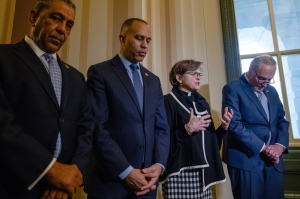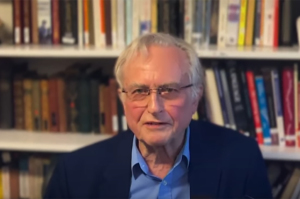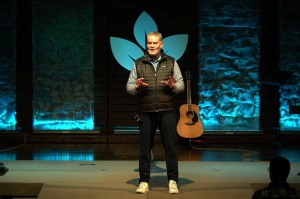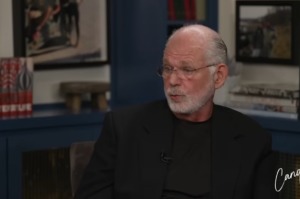Are Televangelists Fleecing the Flock?
“What good is it for a man to gain the whole world, yet forfeit his soul?”—Jesus
Acting on complaints from the public, Senator Charles Grassley, the top Republican on the Senate Finance Committee, has launched an investigation into alleged financial wrongdoing involving six high-profile televangelists, all of whom run "non-profit" organizations. The allegations involve governing boards that are not independent and which allow exorbitant salaries, housing allowances and luxuries such as private jets and Rolls Royces.
Creflo Dollar, pastor of World Changers Church International, is one of those under investigation. He has several Rolls Royces, private jets, a million-dollar home in Atlanta and a $2.5 million Manhattan apartment.
Best-selling author and televangelist Joyce Meyer, known for her candid, self-effacing speaking style, is also under investigation. Her office headquarters, with its 158,000-square-foot, three-story building and furniture estimated at $5.7 million, was built for $20 million in 2001. Since 1999, Meyer's ministry has reported spending at least $4 million on five homes for Meyer and her four children, the largest of which is Meyer's 10,000-square-foot Cape Cod style estate that spreads over three acres and includes a private putting green, a gazebo, a pool and a pool house. Among the items under Senate investigation are a $23,000 "commode with marble top," a $30,000 conference table and an $11,219 French clock, all purchased for Meyer's ministry headquarters. Meyer seems unapologetic for her accumulated wealth. As she blatantly acknowledged: "If you stay in your faith, you are going to get paid. I am living now in my reward."
Although Paul and Jan Crouch, founders of TBN (Trinity Broadcasting Network), are not under investigation by the Senate Finance Committee, they epitomize what it means to wallow in materialism. With a combined annual salary of more than $700,000, the Crouches are some of the highest paid in any of the major religious nonprofit organizations. Since launching TBN in 1973, this husband and wife team has raised millions through buoyant telethon fundraising and appearances of popular personalities such as Creflo Dollar. TBN raises more than $120 million a year from its viewers and continues to tell these viewers that they are "robbing God" if they are not giving to the network. Unfortunately, because many of TBN's financial statements have not been made public, it is difficult to ascertain exactly how its viewers' donations are being spent.
However, the Crouches live lavishly and reap the benefits of donations to TBN. The Los Angeles Times reported that TBN owns 30 homes across the country, including a couple of mansions in Newport Beach and a Texas ranch home, which they make available to the Crouches. As Crouch sums up his philosophy: "If my heart really, honestly desires a nice Cadillac…would there be something terribly wrong with me saying, 'Lord, it is the desire of my heart to have a nice car…and I'll use it for Your glory?' I think I could do that and in time, as I walked in obedience with God, I believe I'd have it."
This belief that God blesses people with wealth, which has gained in popularity over the years, is known as the "prosperity gospel." The prosperity gospel emerged in the 1970s in response to dwindling church attendance. Hoping to appeal to the masses and increase their numbers, many pastors and influential Christian speakers changed their style of preaching and broadened their messages. Indeed, attempting to project a less "established religion" feel, many mega-churches today mirror the tactics of Wall Street and Madison Avenue and have adopted a more generic look. Some have even expanded their facilities to include such general consumer attractions as bowling alleys, NBA regulation basketball courts, exercise gyms and spas and even food courts complete with Starbucks and McDonald's franchises.
Unfortunately, with its promises of success and materialism, the prosperity gospel tends to lure Christians away from the real message taught by Jesus—that is, one that eschews riches and focuses on helping the poor. Instead, broad, distorted ideas are substituted for a message that appeals to as many as possible. And many prosperity gospel preachers eventually find themselves swimming in the so-called "blessings" of material success, which are derived from their ministry.
Yet materialism, pleasing the crowds and jet-setting have nothing to do with Christianity. Jesus was an itinerant preacher who preferred the company of the lowly and despised the rich and powerful. As a cabinet-maker's son, Jesus chose his followers from the lower classes or from a despised trade (tax collectors). However, Jesus not only favored the homeless but was himself homeless during his public life. His entire focus was self-denial and helping the poor. Indeed, Jesus said that it was the meek and the poor who would be blessed—but not with material possessions. "Do not lay up for yourselves treasures on earth," he admonished.
Jesus also urged his followers that if they practiced true Christianity, they would suffer as he did. But as one commentator notes, suffering as a Christian virtue is not part of the prosperity worldview. "Some call it Christianity Lite—you get all the benefits, but don't pay attention to the fact that Jesus called for suffering." And you don't tackle many of the problems of the world—such as poverty, suffering and war.
Thus, too often, the prosperity preachers disregard Jesus' message in order to present the illusion that if those listening will send money to them, they—the poor—can be rich also. This is a lie. In fact, influential pastor and bestselling author Rick Warren goes so far as to call the prosperity message "baloney." As he said, "It's creating a false idol. You don't measure your self-worth by your net worth. I can show you millions of faithful followers of Christ who live in poverty. Why isn't everyone in the church a millionaire?"
_________________________________________________
Constitutional attorney and author John W. Whitehead is founder and president of The Rutherford Institute. He can be contacted at johnw@rutherford.org. Information about the Institute is available at www.rutherford.org.





























